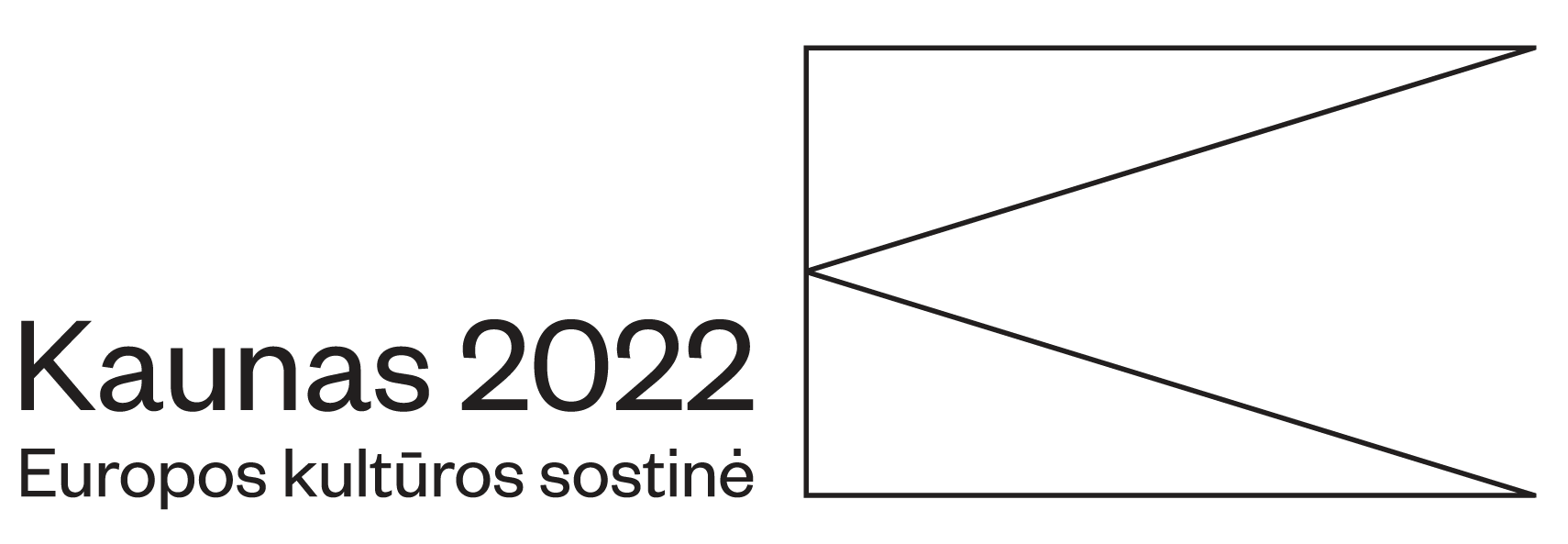The cultural community of Kaunas has already made its decision regarding the title and slogan of the “European Capital of Culture 2022”. By using the title “temporary capital”, which it historically was, and has become a synonym of Kaunas city as the first step, it has been decided to proceed further in this direction. The new name and slogan “Contemporary Capital” reflects the meaning that the positive identity of the city has not remained stuck back in the past century, i.e., it is being created by the residents of Kaunas now.
“The capital of culture does not mean fireworks, sparkling events or millions to be absorbed. First of all, it is our cohesion, the involvement of the residents of the city in the cultural movement, and, generally, in daily city life. During the assessment of the application to become the European Capital of Culture, one of the main aspects will be the content and financial objectivity of the programme. This is an excellent opportunity to revive Kaunas in every sense”, said Simonas Kairys, Kaunas Vice-Mayor and representative of the Liberal Movement.
Why is Kaunas so special?
According to the “Kaunas as the European Capital of Culture 2022” (KEKS 2022) project’s Programme Development Manager, Virginija Vitkienė, Kaunas has the longest pedestrian zone in Europe, Laisvės alėja (Liberty Boulevard). This is a special place for leisure, meetings and the gathering together of people, which could be surrounded by different events. The confluence of two rivers also dictates the thematic direction. It is also a confluence of cultures and different views. Moreover, Kaunas is a city of forts. This fact shall also be utilised when preparing the application.
“These are only the external (urban) characteristics of the city. The most important particular feature of Kaunas is the belief of the local people in the potential for positive change and their willingness to contribute to it. You can already find all forms of contemporary art and culture, and striking breakthroughs in community activities here, and we will create what is missing by means of the “Contemporary Capital” programme”, claimed V. Vitkienė.
Involvement of Communities
In the nearest future, the officers of Kaunas cultural institutions and independent creators will have to generate the main directions of the KEKS 2022 programme. Not only will artists be involved this activity, but also all communities of the city.
“The preparation process itself builds bridges between local communities and cultural institutions and stimulates more innovative thinking. We will await help from all of you with the generation of ideas and creation of an interesting programme which will contribute to the creation of the identity of Kaunas as a creative city”, stated V. Vitkienė.
According to V. Vitkienė, the preparatory work was started more than one year ago. Thus, we have already travelled a good distance towards our goal and there is no intention of stopping.
“Almost a third of the applications consist of an in-depth analysis of our own city. This will also contribute to further development of the city in the future. We are going to complete the programme by the beginning of February. We will leave several months open for the endorsements of partnerships, ensuring synergy between the programme and the long-term strategy of the city”, said V. Vitkienė.
Quality and Transnationality
“The cultural programme itself, its quality, innovativeness and transnationality is a very important criterion when assessing its application to the city. However, the purpose of the capital of culture programme is a positive transformation of the city and international attention, rather than the organization of events or a one-off yearly project. This is an opportunity for the city to catalyse and accelerate positive, cultural, social changes within and outside the city, while seeking the achievement of the city’s strategic goals, creating new cultural services, building international relationships, promoting the cultural involvement of local people, and closer cooperation between business, culture, tourism and much more. This is the reason why the involvement of the local community is so important, and has to be as high as possible when planning the directions and actions of the KEKS programme”, said Ana Čižauskienė, who is responsible for preparation of the application of Kaunas.
“When preparing the application, the cooperation of the city’s communities is very important, as well as the availability and relevance of culture to the larger part of society and the involvement of various groups”, said Ina Pukelytė, Chair of the Education and Culture Committee of Kaunas City Council.
Two Capitals
The applications of the Lithuanian cities will be assessed by the international commission. The title of the European Capital of Culture is granted every year to more than one city in each of two EU Member States. In 2022, Lithuania and Luxemburg have gained the right to have the title of the European Capital of Culture granted to one of their cities.
The final decision regarding granting the title of European Capital of Culture will be made in 2017. The idea of the “European Capital of Culture” was implemented in 1985 for the first time at the initiative of Melina Mercouri, who was the Minister of Culture of Greece at that time.
Text and photos from www.kaunas.lt

